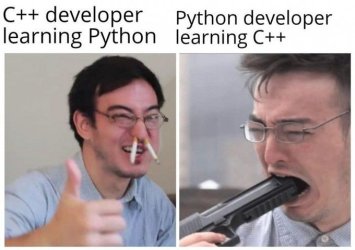- Joined
- Jun 18, 2015
- Messages
- 463 (0.13/day)
- Location
- Perth , West Australia
| System Name | schweinestalle1 and schweinestalle 2 |
|---|---|
| Processor | AMD Ryzen 7 5700X3D / AMD Ryzen 3200G |
| Motherboard | Asus Prime - Pro X570 + Asus PCI -E AC68 Adapter / Asus Prime B450 M-K |
| Cooling | iD cooling frozen 620 / AMD Wraith |
| Memory | Kingston HyperX 2 x 16 gb DDR 4 3200mhz / Kingston HyperX 2x 8Gb DDR 3200mhz |
| Video Card(s) | AMD Radeon RX 7800 XT 16GB Pulse / AMD Reference Vega 64 8GB |
| Storage | Crucial 1TB M.2 SSD and WD Blue 500gb Nand SSD / WD Blue 240gb M.2 SSD |
| Display(s) | Asus XG 32 V ROG and LG ultra gear 32gs75q / TCL TV |
| Case | Corsair AIR ATX / Corsair Air Mini ATX |
| Audio Device(s) | Realtech standard / Realtech standard |
| Power Supply | Corsair 850 Modular / Corsair 750 Modular |
| Mouse | CM Havoc / Microsoft Wireless |
| Keyboard | Corsair Cherry Mechanical / Razor piece of shit |
| Software | Win 10 // Linux Mint / win 10 |
| Benchmark Scores | Soon ! whateva |
Hi people , ive recently started learning Python from open source D/L and using Visual code , but have changed to Pycharm for now.
Im finding it fascinating , and cant stop getting on to the next subject eg: typecasting / to inputs.
Im using the you tube free courses to learn but was wondering if anyone here has any tricks or user ideas that could make my experience better .
1 : Is the you tube courses any good or are they just click bait?
2: what is the end game use of python for a average joe ?
thanks rob
Im finding it fascinating , and cant stop getting on to the next subject eg: typecasting / to inputs.
Im using the you tube free courses to learn but was wondering if anyone here has any tricks or user ideas that could make my experience better .
1 : Is the you tube courses any good or are they just click bait?
2: what is the end game use of python for a average joe ?
thanks rob










 just to add i did have a basic knowledge of C++ in 1999 .. lol
just to add i did have a basic knowledge of C++ in 1999 .. lol Though there is a catch - now he has to do the job, and learning technical stuff "on the fly" is much harder and waaay more stressful.
Though there is a catch - now he has to do the job, and learning technical stuff "on the fly" is much harder and waaay more stressful.